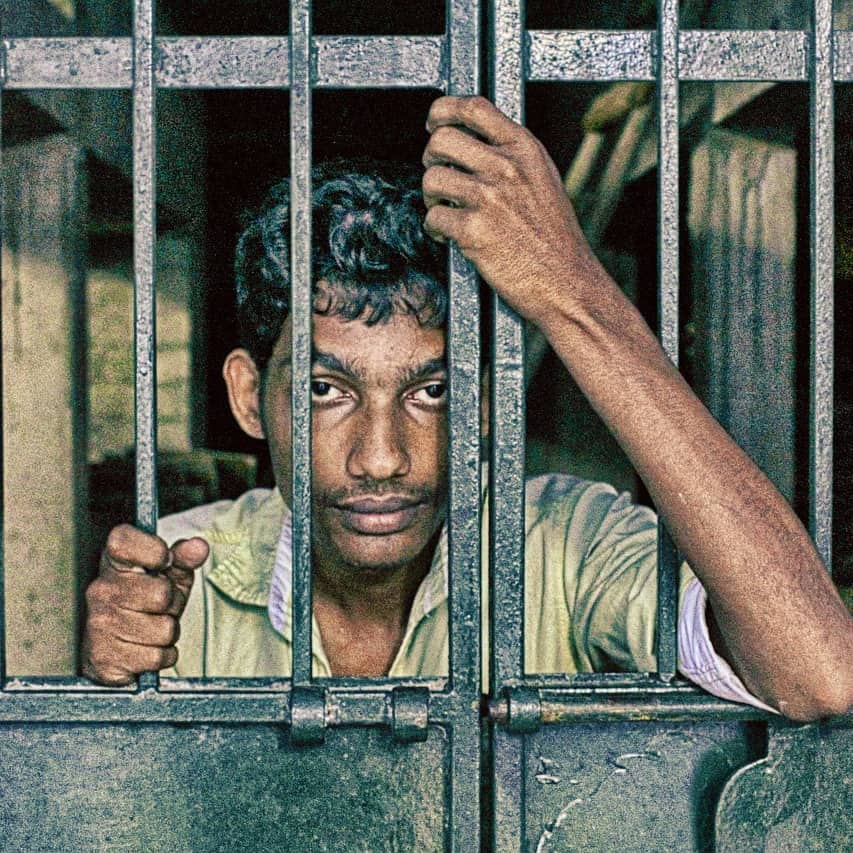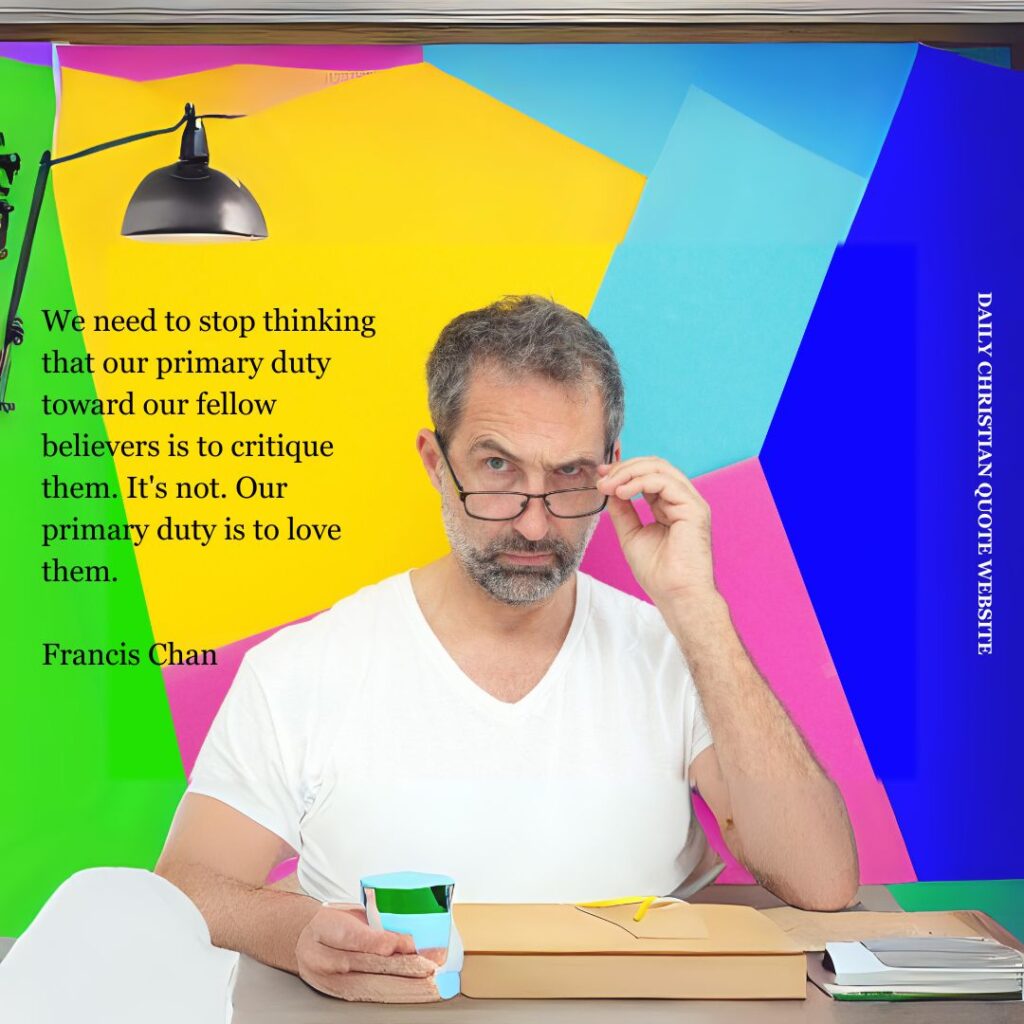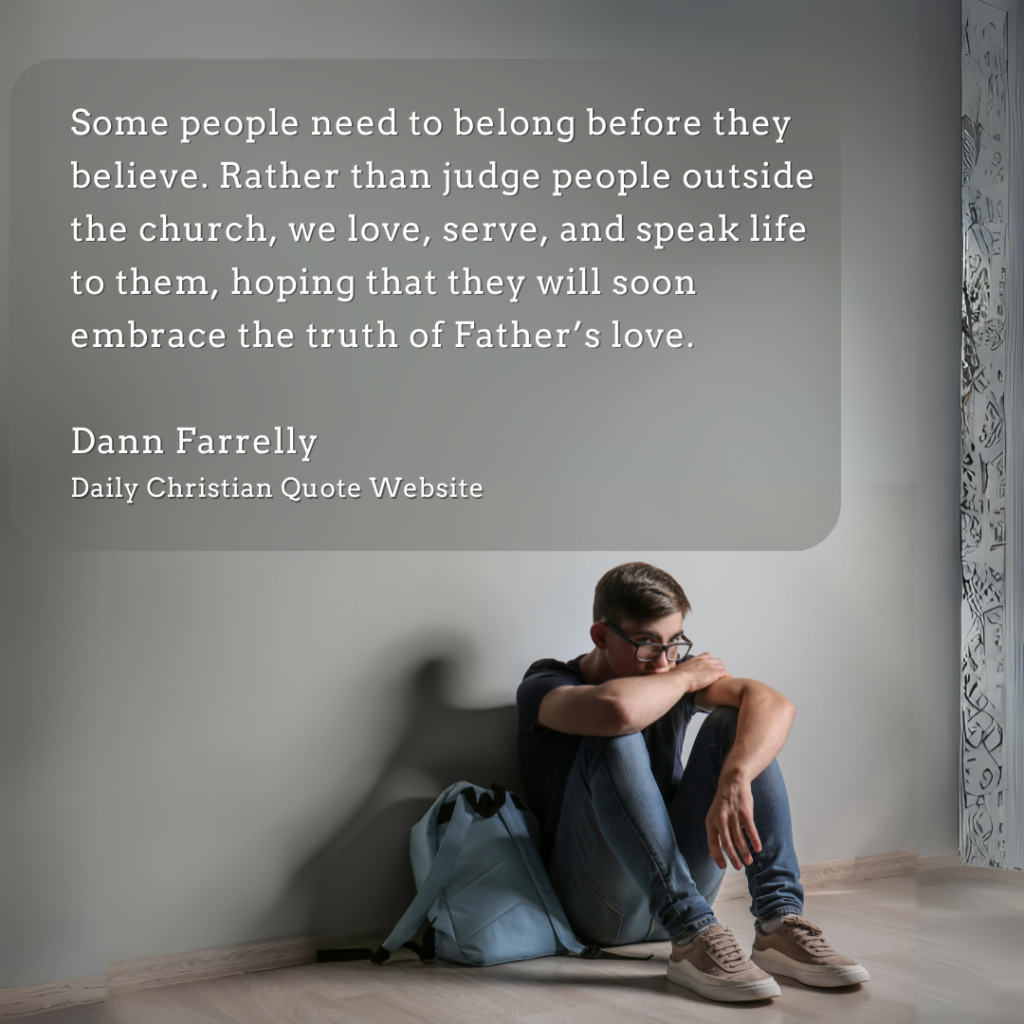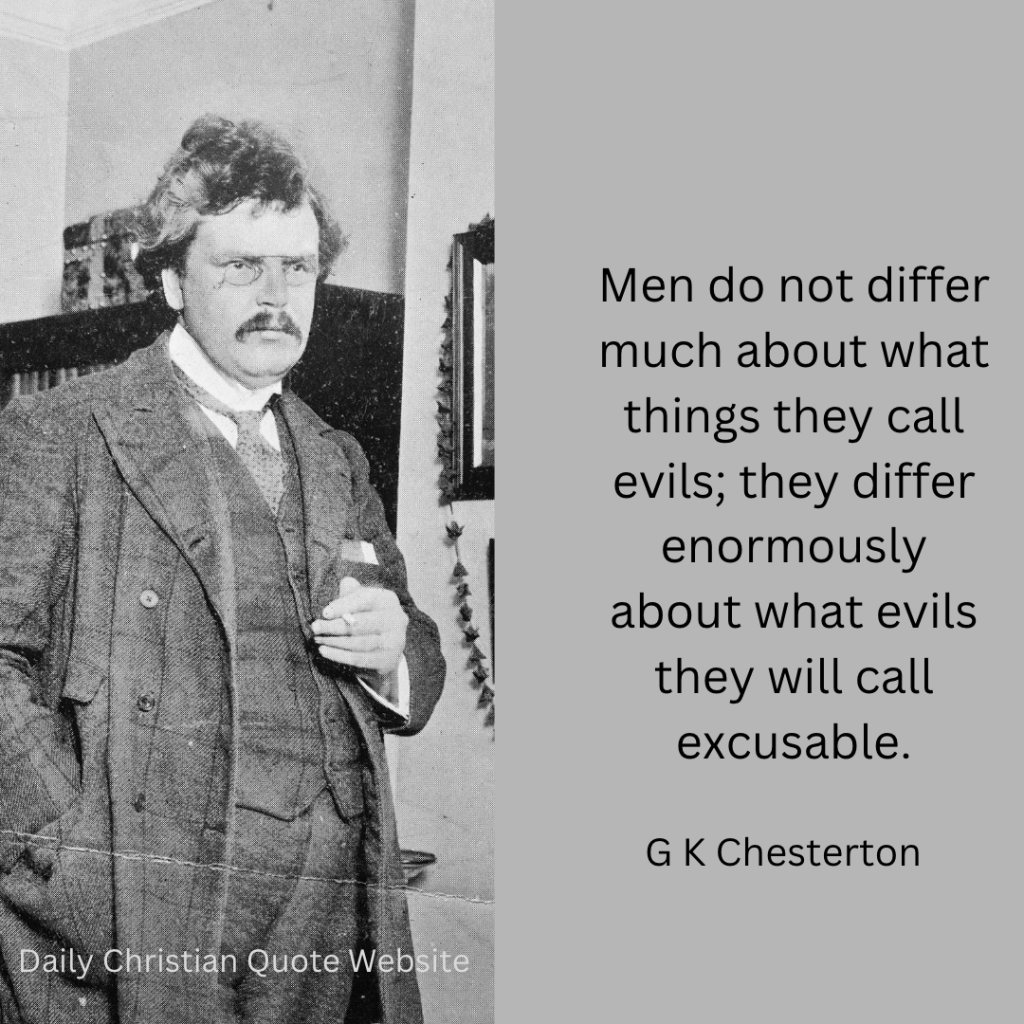We need to stop thinking that our primary duty toward our fellow believers is to critique them. It’s not. Our primary duty is to love them
Judging
Dann Farrelly
Kris Vallotton
A very specific ministry has been entrusted to us. Not one of condemnation. Not one of being in the spotlight. Not one of judgment. Not one of personal kingdom building. The ministry we have been given is the same ministry that Jesus had while He walked the earth. He was on a mission to reconcile humankind back to the Father,
Henry Cloud
People who succeed in life do not go around setting scores; they do not even keep scores. They run up the score by doing good to others, even when the others don’t deserve it. They give them better than they are given. And as a result, they often bring the other person up to their level, instead of being brought down to the level of the other.
Charles L. Allen
When you say that a situation or a person is hopeless, you are slamming the door in the face of God.

Catherine Marshall
When your heart is ablaze with the love of God, when you love other people – especially the ripsnorting sinners – so much that you dare to tell them about Jesus with no apologies, then never fear, there will be results.
Madeleine L’Engle
We would like God’s ways to be like our ways, his judgments to be like our judgments. It is hard for us to understand that he lavishly gives enormous talents to people we would consider unworthy, that he chooses his artists with as calm a disregard of surface moral qualifications as he chooses his saints. Often we forget that he has a special gift for each one of us, because we tend to weigh and measure such gifts with the coin of the world’s marketplace. The widow’s mite was worth more than all the rich men’s gold because it represented the focus of her life. Her poverty was rich because all she had belonged to the living Lord.
———
Gilbert Keith G. K. Chesterton
Jerry Bridges
One of the most difficult defilements of the spirit to deal with is the critical spirit. A critical spirit has its root in pride. Because of the ‘plank’ of pride in our own eye we are not capable of dealing with the ‘speck’ of need in someone else. We are often like the Pharisee who, completely unconscious of his own need prayed “God, I thank you that I am not like other men” (Luke 18:11). We are quick to see – and to speak of – the faults of others, but slow to see our own needs. How sweetly we relish the opportunity to speak critically of someone else – even when we are unsure of the facts. We forge that “a man who stirs up dissension among brothers” by criticizing one to another is one of the “six thing which the Lord hates” (Proverbs 6:16-19)
Thomas Merton
It is… of supreme importance that we consent to live not for ourselves but for others. When we do this we will be able first of all to face and accept our own limitations. As long as we secretly adore ourselves, our own deficiencies will remain to torture us with an apparent defilement. But if we live for others, we will gradually discover that no one expects us to be ‘as gods’. We will see that we are human, like everyone else, that we all have weaknesses and deficiencies, and that these limitations of ours play a most important part in all our lives. It is because of them that we need others and others need us. We are not all weak in the same spots, and so we supplement and complete one another, each one making up in himself for the lack in another.


